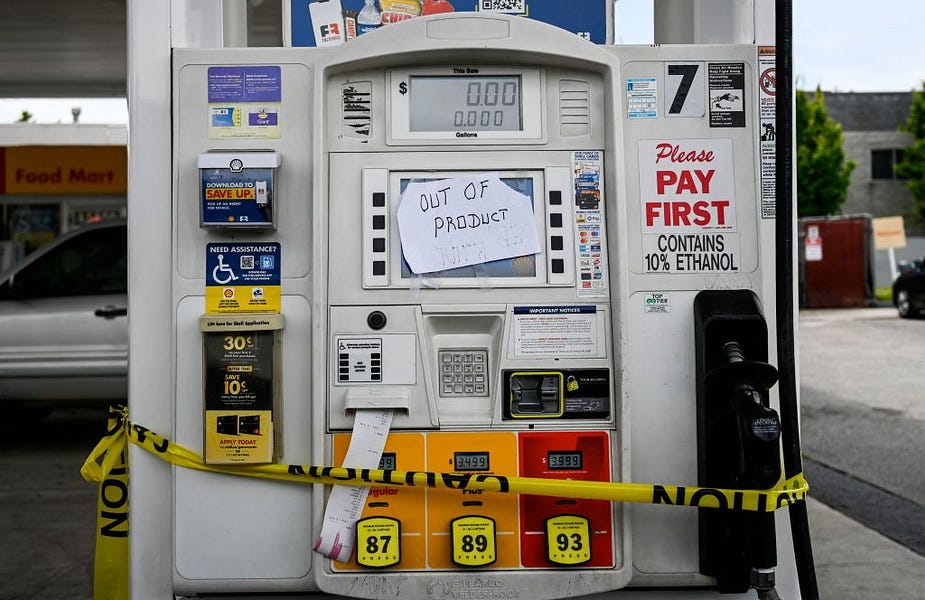The Colonial Pipeline, which provides roughly 45 percent of the East Coast’s oil, gas, and jet fuel, was hacked last week by a group called DarkSide. The cyberattack forced the pipeline owners to shut down operations, leading to long gas lines in many American cities.
The incident has sparked a long-overdue discussion about how to deal with what may be one of the biggest national security threats of the 21st century. A host of countries, including the United States, have sophisticated cyber operations. The Chinese have penetrated large swaths of our infrastructure. Russia and North Korea have sown mischief on several occasions.
Last year, Russia hacked into the cybersecurity firm Solar Winds, whose clients include Microsoft and numerous U.S. government agencies, among them the Defense Department, the Department of Homeland Security, the State Department, the National Nuclear Security Administration and the Treasury.
In 2014, the Guardians of Peace, now more commonly known as the Lazarus Group, hacked into Sony Pictures’ computers and stole a treasure trove of information, including emails between executives, personal data, salary information and copies of unreleased films. The hackers’ stated aim was to prevent the release of the comedy “The Interview,” which made fun of North Korea’s crapulent boy king Kim Jung Un. The FBI designated Guardians of Peace a North Korean state-sponsored hacking organization.
It all sounds so futuristic. But sometimes when we get a glimpse of future threats, it’s wise to rummage through the lessons of the past.
As metaphors go, describing the internet as a vast ocean isn’t half bad. There are enormous continental powers such as Facebook. There are archipelagos of smaller sites linked to each other in various ways. There are even remote lawless islands in hard-to-access backwaters like the dark web. And, as with a real ocean, commerce and communication depend on being able to navigate it.
In the 18th and 19th centuries, being a seafaring nation brought power, prosperity and prestige. And it brought pirates.
Which brings me back to DarkSide. Sure, it’s a criminal organization, and its members should be brought to justice. But it’s also fascinating. DarkSide’s hackers claim to be bound by an ethical code, saying they won’t hack hospitals or schools.
“We are apolitical, we do not participate in geopolitics, do not need to tie us with a defined government and look for other our motives [sic],” DarkSide said in a statement. “Our goal is to make money, and not creating problems for society.”
There’s no reason to take them at their word. DarkSide will not attack Russian targets, no doubt in part because it is based there, according to U.S. officials, and operates with a wink and nod from Vladimir Putin.
This is nothing new. Pirates and privateers often cut side deals with local authorities.
Pirates also had their own codes. In his magnificent book The Invisible Hook: The Hidden Economics of Pirates, Peter Leeson describes the incredibly sophisticated ethical (and even constitutional) systems created by pirates to regulate and guide their profession. “Pirates’ system of constitutional democracy predated constitutional democracy in France, Spain, the United States, and arguably even England,” Leeson writes.
Some pirate ships had detailed rules for everything from profit sharing to trials by jury. Just because an outfit is “stateless” doesn’t mean it can’t have its own form of statecraft.
Of course, pirates were also criminals, often vicious ones. But even their reputation for cruelty had a purpose. The Jolly Roger—that skull-and-crossbones flag—was a brilliant bit of marketing, according to Leeson, because it telegraphed to victims that they should surrender without a fight or face horrifying consequences. As the Dread Pirate Roberts says in The Princess Bride, “Once word leaks out that a pirate has gone soft, people begin to disobey you, and then it’s nothing but work, work, work all the time.”
That’s the business many of these hackers are in. Pay up quickly or meet a horrible fate, in the form of economic calamity or leaked personal information.
In the golden age of piracy, governments responded to the pirate threat in all sorts of clever ways. One response was the issuance of “letters of marque and reprisal”—mentioned in the U.S. Constitution—which granted private captains the authority to wage war on our enemies. Our 21st century enemies are doing that already. Perhaps as a great cyberfaring nation, it’s time we do likewise.








Please note that we at The Dispatch hold ourselves, our work, and our commenters to a higher standard than other places on the internet. We welcome comments that foster genuine debate or discussion—including comments critical of us or our work—but responses that include ad hominem attacks on fellow Dispatch members or are intended to stoke fear and anger may be moderated.
You are currently using a limited time guest pass and do not have access to commenting. Consider subscribing to join the conversation.
With your membership, you only have the ability to comment on The Morning Dispatch articles. Consider upgrading to join the conversation everywhere.